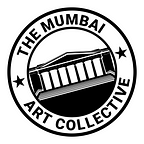The Art of Asking Why: Writing and Performing “Shame”
Anu Elizabeth Roche| January 14, 2017
One of the best (and worst) things about me is that I never let go of a piece. I have a habit of frequently editing my poems, either adding things and cutting away unnecessary lines. Sometimes this works against my favour and makes a lengthy mess out of a good poem. But on rare occasions, it works. “Shame” was one of them.
“Shame” was born out of frustration at two things: men urinating in public, and women getting catcalled. The two may not seem all that connected, but in my mind it seemed as if both these activities were rooted in shame and entitlement. A man who peed in public felt entitled not only to defile a public place, but also didn’t feel the kind of shame women were expected to show with their private parts. Women who were catcalled were frequently admonished and blamed for being out in public, wearing certain clothes, having certain body parts show. Often, some of them learned to walk with measured, guarded steps, holding their bodies as if it was something not meant to be seen.
To me the point seemed obvious: shame and entitlement were learned behaviours, and only in identifying them could we break out of this vicious cycle. With this in mind I wrote the story of Seetha’s daughter, who doesn’t have a name because I wanted every person who has faced this to identify with her, and her journey to her Aunt Seema’s house. I wanted to use the word vagina on stage and make people uncomfortable, and then make them wonder why they would have to be.
However, my first draft of this piece was shorter, and went straight from the “vaginal wash” lines, to imagining a future where she learned shame. It did not have the bits where she felt empowered. It didn’t even openly say “vagina”. I expected the empowerment to be obvious to my audience. But they didn’t understand. Some laughed at the references to men urinating, some laughed at the vaginal wash line. Some tittered at my over the top impression of the girl’s aunties. But at the end of my performance, all I faced was blankness. Quiet. The kind of quiet that comes when a performance has zero effect on an audience. When they didn’t get it, when they didn’t respond, I knew something was clearly missing.
It took me a year of reading up, listening to other women and self reflection, to figure out how to fill this gap. To do that, I had to break my own vicious cycle first. I had to follow my own poem’s philosophy and talk about shame. About pleasure, clitorises, masturbation, pride. So I wrote a bridge between those two stanzas where I envisoned a future where Seetha’s daughter could go back to her mirror and look at her vagina again. Where she could “know that there is one place in your entire body meant to pleasure no one else but you”. I learned not to exaggerate the aunts’ lines — I knew many aunts who would say those lines, and they would say it in the most serene, normal way possible. Because for them shame WAS normal. Finally, my piece seemed to get to the crux of this problem: the fact that we were taught not to even talk about our private parts in the open.
Wherever I have gone with this poem, those extra lines have opened up some sort of dialogue. I’ve had people tell me it was their first time seeing a woman talk about her body so openly. I’ve had girls come up to me and tell me they will go back to that mirror, aware of their shame this time. I’ve grown as a person and a performer. In the last three years I have seen this poem grow, and audiences grow with it. This piece has taught me to never, ever stop asking “why”.
—
Anu Elizabeth Roche is The Mumbai Art Collective’s Poet of the Month for January 2017. She has been performing Spoken Word poetry for over three years now, with featured performances in several literary festivals, including Kaavya Hotra, Times Celebrate Bandra and Poets Translating Poets, and has acted as a judge for performance poetry at Malhar 2016 and Mood Indigo IIT 2016. Born in Dubai to Malayali parents, she has moved between Chennai and Bangalore before settling down in Mumbai with her husband and daughter. It is no wonder, then, that she can’t answer the question “Where are you from?” in a single sentence.
